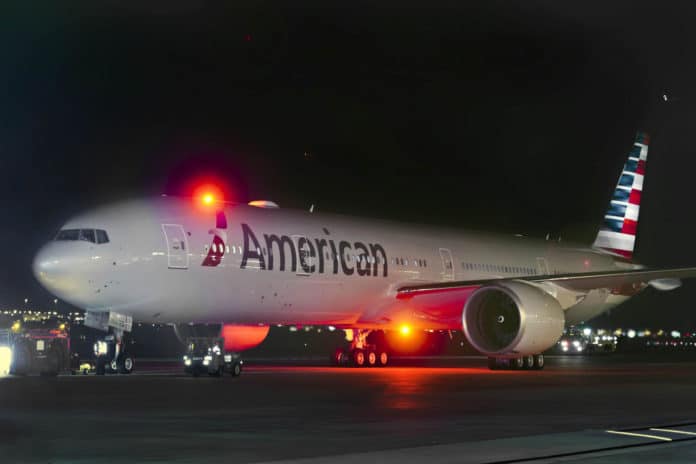WASHINGTON — Even as Secretary of State John Kerry has courted Persian Gulf leaders this week over the Iran nuclear deal, an increasingly contentious battle back home has enveloped three airlines those leaders hold dear.
The airlines — Qatar Airways, Emirates and Etihad Airways — are on pace to become dominant passenger carriers in the global market, threatening the three biggest U.S. airlines and their partners in Europe and Asia.
Those U.S. carriers — Delta, United and American — say it’s unfair competition because the gulf airlines get big government subsidies from Qatar, Dubai and Abu Dhabi. In a January white paper, the airline coalition detailed how the good-old-boy network in the three gulf city-states intertwine government with the airlines.
They want the federal government to intervene on their behalf and make it easier for them to compete. But as the federal comment period on their complaint closed a minute before midnight Monday, it was apparent that the us-against-them scenario depicted by the U.S. airlines has not held up.
FedEx, a U.S. company that flies 660 cargo planes worldwide and has an operations hub in Dubai, already was on record as opposing any federal intervention that might lead to retaliation by the gulf states.
On Monday, it joined with another big cargo carrier, Atlas Air Worldwide, and two smaller U.S. passenger carriers, JetBlue Airways and Hawaiian Airlines, in a formal letter sent to Kerry, Transportation Secretary Anthony Foxx and Commerce Secretary Penny Pritzker.
“I think it’s important to show that this isn’t three U.S. airlines versus three gulf airlines,” Rush O’Keefe, general counsel for FedEx Express, said in a conference call with reporters. “There’s a wide swath of American aviation interests as well as business interests who do not support what’s being suggested here by American, Delta and United.”
The letter says that Delta, United and American “do not speak for all, or even most, U.S. airlines” and that the “Big 3” airlines are attempting to “coerce those [Persian Gulf] governments into a renegotiation that reduces [their] access to the U.S. market.”
The specific request by the three big U.S. carriers is that the federal government seek formal consultations with Qatar and the United Arab Emirates, home base for Etihad and Emirates, over a provision in the Open Skies agreement that allows airlines unfettered access to each other. The provision specifies that airlines from each country should have a “fair and equal opportunity” to compete.
While the proposed talks are underway, they want gulf carriers’ access to U.S. markets frozen at current levels.
All three of the gulf airlines have grown rapidly in recent years, expansion that puts them on the same footing as the world’s largest airlines. The Delta-United-American group says the competition is unfair because the three gulf airlines are government-owned and have received $42 billion in subsidies from their governments.
They fear that lucrative international flights will be dominated by the three gulf carriers, who have received or ordered at least 160 of the giant Airbus A380 airliners, which can seat up to 853 passengers in an all-economy-class configuration. After years of instability marked by bankruptcies and mergers, the U.S. airline industry has returned to a profitable footing, but the big legacy airlines need global expansion to continue to show profit.
“JetBlue is just 15 years old, but we’re not unfamiliar with attempts by the legacy carriers to thwart growth and stifle competition,” said James Hnat, JetBlue’s general counsel, “and we think the rhetoric we’re hearing on this issue is just one more attempt at just that.”
FedEx’s O’Keefe and Russell Pommer, associate general counsel for Atlas Air Worldwide, said there was no evidence that the gulf nations would retaliate if the United States seeks concessions under the Open Skies agreement, but neither man ruled that out.
“The way it worked before you had Open Skies was those were the kinds of corresponding actions that governments would take. If you restrict our carriers from operating there, we’re going to have corresponding restrictions on the way that your carriers operate here,” O’Keefe said
Jill Zuckman, spokeswoman for the Delta-United-American group, called the FedEx-led group “a meaningless coalition without a cause” and said their fear of retribution was groundless.
“We have economic disputes with our allies all of the time,” she said, “and it’s a sign of a mature relationship between two countries that we can agree on security issues and fight over trade matters.” Zuckman said her tally of formal comments to the three federal agencies — the Transportation, Commerce and State departments — showed they were running about 2 to 1 in support of the call for consultations with Qatar and the UAE.
While the comment deadline passed on Monday, the government agencies left the window for submission of additional materials open until Aug. 24. No decision has been made on how to proceed after that date.
“We are confident that the Obama administration will find it persuasive that employees, unions and management are all standing shoulder to shoulder in the fight for American jobs,” Zuckman said. “The massive government subsidies going to Qatar Airways, Etihad Airways and Emirates pose the single greatest threat to the U.S. aviation industry, and a request to hold talks with our country is both modest and reasonable.”






